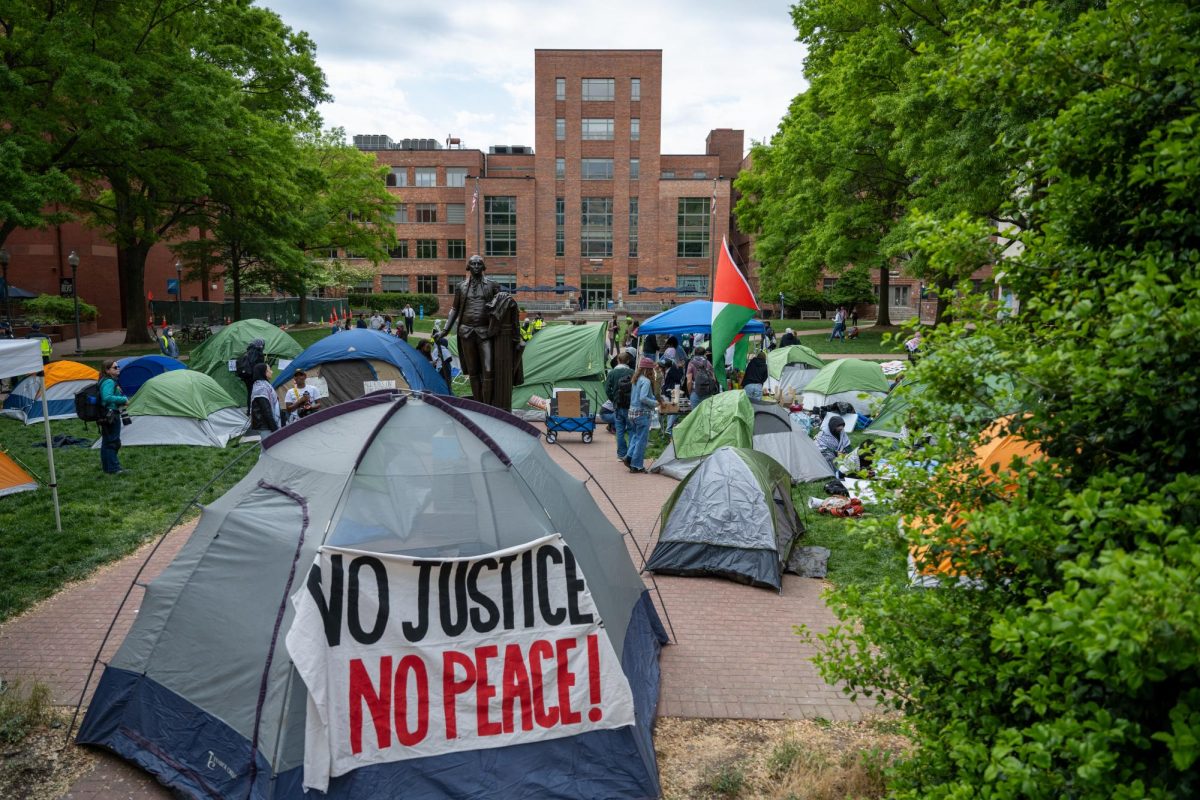D.C. construction contractors say they are running into many of the same problems that have pushed several GW construction projects past their scheduled completion deadlines.
University officials cite worker shortages and city permits as two main holdups in campus construction projects, such as the Media and Public Affairs building and an addition to Somers Hall at Mount Vernon. GW pushed back both completion dates for at least a semester beyond its originally scheduled deadlines.
“All the construction companies and builders are competing for the same small labor pool,” said Stan Cousins, project manager for Whiting-Turner Contracting Co., which GW contracts for Marvin Center renovations and Health and Wellness Center construction. “We’re pulling from each others’ projects. It is a major problem.”
Cousins said a D.C. worker shortage that developed three years ago has caused increases in labor costs for projects.
Director of Media Relations Gretchen King said D.C. permits also delay projects significantly.
“This is where ideally the District should have permits processed in 30 days,” she said. “We anticipate for the District to take four to six months. For the Elliott School (of International Affairs) they took 13 months. It’s very difficult to work with that.”
Elliott School construction is on track for completion by fall 2002 after D.C. granted excavation and full building permits in October, King said.
Cousins said the great number of construction projects around the city causes permit delays.
“Getting all the permits is a major problem in the majority of projects,” he said. “That’s not just the University, that’s everyone in the District of Columbia. I’m not accusing the District of Columbia of being needlessly slow, they’re overworked right now too.”
Cousins said GW sets completion timelines and milestones for campus projects. Although architects and builders apply for permits at other sites around the city, GW uses its status in the city to complete the application process.
“One reason is the University is a major player in the District of Columbia and they have more influence on the building department in (D.C.) than a builder does,” he said.
Yaw Agipong the chief structural engineer for the D.C. Department of Consumer and Regulatory Affairs, which grants final approval for permits, said the permit process normally takes four to six weeks.
“You cannot get it any earlier than that,” he said, adding that the process takes longer if there are flaws in the project plans.
King said the University considers permit delays in its construction plans.
“We try to anticipate that as much as possible,” King said. “We have, working within our construction program, two or three people working full time all the time to get the District to do what they’re supposed to do.”
Bob Chernak, vice president of Student and Academic Support Services, cited other reasons for construction delays.
“Even after you get all the approvals, the litigation can hold you up,” he said. Chernak said residents occasionally file lawsuits to stop construction in their neighborhood, and some projects are awaiting approval of GW’s campus plan for 2000-2010.
GW changed building plans for the Health and Wellness Center, at 23rd and G streets, in a compromise with neighboring St. Mary’s Episcopal Church, Chernak said. The building site was moved away from the church to allow sunlight in the church during services.
In November 2000, the Foggy Bottom Association appealed the Board of Zoning Adjustment’s decision to allow the construction of the new GW Hospital. The Advisory Neighborhood Commission opposed the Media and Public Affairs building plan in October 1998 before it was approved. Both the ANC and FBA opposed construction of the Health and Wellness Center in October 1998 before it was approved the following January.
Another building site, across from the Health and Wellness Center on G Street, awaits the Board of Zoning Adjustment’s approval of the campus plan, scheduled for Feb. 6.
Chernak also said D.C. changed regulations about six or seven months ago to prohibit building on two sides of a street at once, halting Marvin Center construction while workers complete the MPA building. Delays have pushed the MC Great Hall completion date from October 2001 to March 2002.







